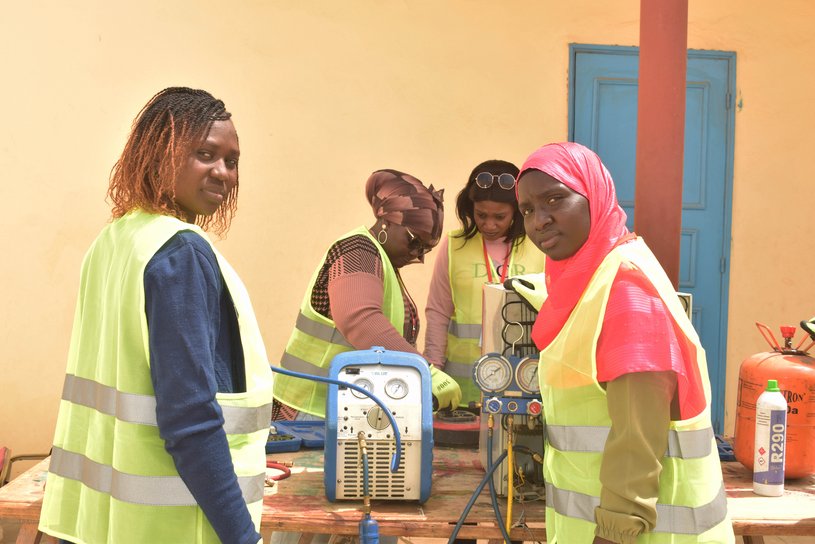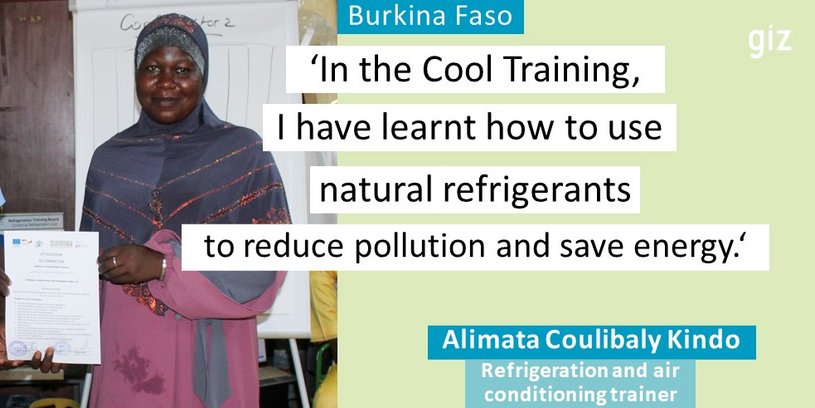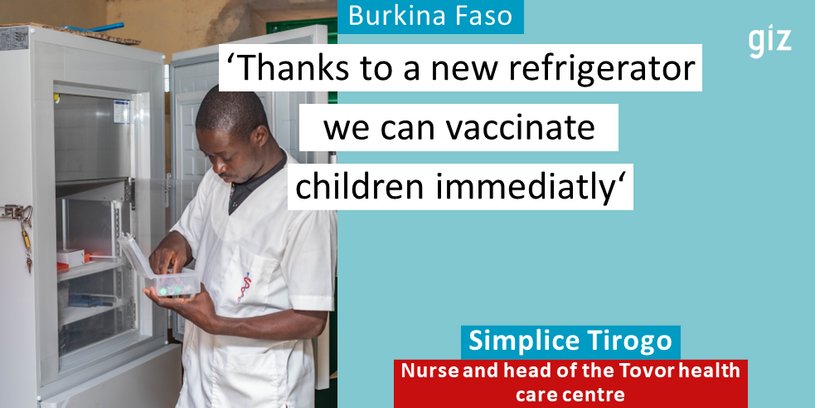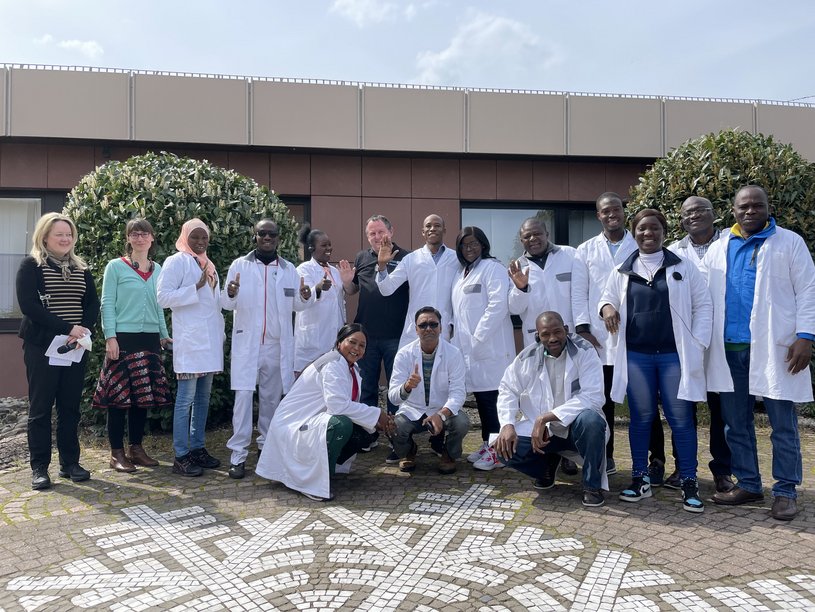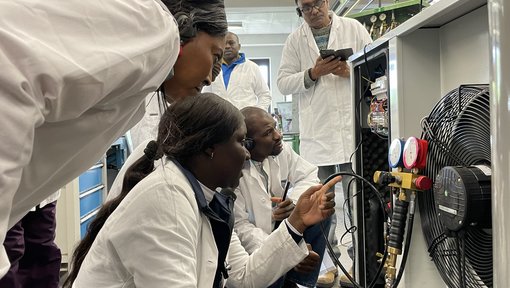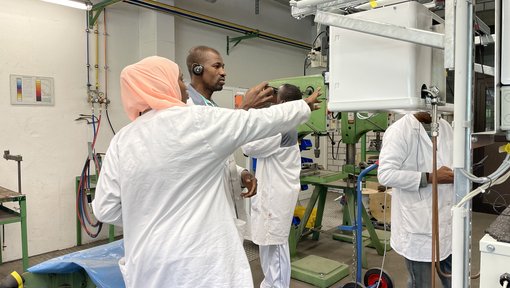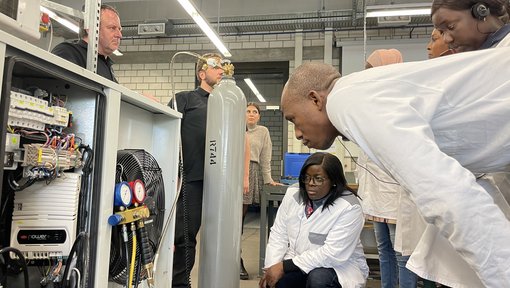In a significant step towards promoting sustainable refrigeration practices in francophone Africa, GIZ Proklima in cooperation with the vocational training institute Bundesfachschule Kälte-Klima-Technik (BFS) recently conducted a two-week Cool Training. The training, held at the BFS in Maintal, aimed to equip refrigeration technicians from francophone African countries with knowledge and practical skills related to natural refrigerants.
A total of 14 participants from Mali, Cameroon, Burkina Faso, Senegal, and Mauritius enthusiastically engaged in the comprehensive training program. The participants explored the use of various natural refrigerants, including carbon dioxide, ammonia and propane, which are environmentally friendly alternatives to traditional synthetic refrigerants. With 13 of the participants participating through the project ROCA (opens in a new window) funded by the EU and the German Federal Ministry for Development and Cooperation (BMZ), and one participant from Mauritius through the respective HPMP (opens in a new window), also funded by BMZ.
The Cool Training program placed great emphasis on practical application, allowing the participants to gain hands-on experience and enhance their technical proficiency. Under the guidance of the experienced trainer Reiner Mayers, the technicians had the opportunity to practice working with natural refrigerants, familiarizing themselves with the equipment and techniques required for their safe and efficient operation. As team leaders, trainers and entrepreneurs, they will spread their newly acquired skills in their countries.
In addition to the training sessions, participants were invited to an insightful field trip to Nordfrost (opens in a new window), a company specialized in the use of ammonia refrigeration systems. This visit provided participants with valuable insight into the practical operation of an ammonia refrigeration system in use. They had the opportunity to observe and learn from industry experts and gained insights into the maintenance, operation and safety aspects of ammonia-based refrigeration systems.
The importance of this Cool Training program lies not only in the knowledge and skills the participants have gained, but also in the potential impact they can make in their home countries. By taking advantage of the training opportunities offered in Germany, these refrigeration technicians are now able to transfer their enhanced knowledge of natural refrigerants to their respective home countries.
This knowledge transfer will play an important role in introducing sustainable refrigeration practices, promoting energy efficiency and reducing the environmental impact of refrigeration systems in Francophone Africa.
For more information about the Cool Training program see here (opens in a new window).

